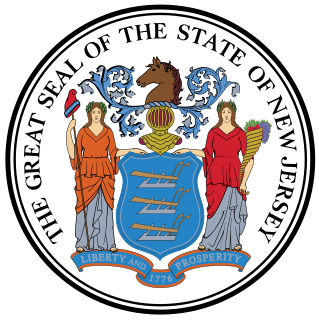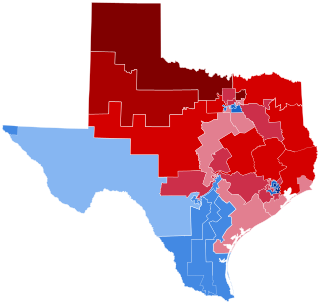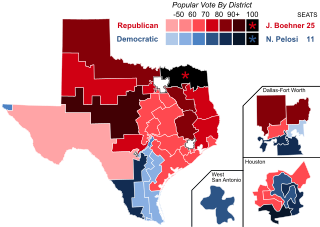A write-in candidate is a candidate in an election whose name does not appear on the ballot, but for whom voters may vote nonetheless by writing in the person's name. The system is almost totally confined to elections in the United States. Some U.S. states and local jurisdictions allow a voter to affix a sticker, with the write-in candidate's name, to the ballot in lieu of actually writing in the candidate's name. Write-in candidacies are sometimes a result of a candidate being legally or procedurally ineligible to run under his or her own name or party; write-in candidacies may be permitted where term limits bar an incumbent candidate from being officially nominated for, or being listed on the ballot for, re-election. In some cases, write-in campaigns have been organized to support a candidate who is not personally involved in running; this may be a form of draft campaign.

General elections were held in Luxembourg on 13 June 2004, alongside European Parliament elections. The ruling Christian Social People's Party (CSV) of Prime Minister Jean-Claude Juncker won the election, increasing its number of seats to its highest since before 1989 and its share of the vote to levels not seen since the 1959 election.
Elections in Luxembourg are held to determine the political composition of the representative institutions of the Grand Duchy of Luxembourg. Luxembourg is a liberal representative democracy, with universal suffrage guaranteed under the constitution. Elections are held regularly, and are considered to be fair and free.

The 2006 United States House of Representatives elections were held on November 7, 2006, to elect members to the United States House of Representatives. It took place in the middle of President George W. Bush's second term in office. All 435 seats of the House were up for election. Those elected served in the 110th United States Congress from January 3, 2007, until January 3, 2009. The incumbent majority party, the Republicans, had won majorities in the House consecutively since 1994, and were defeated by the Democrats who won a majority in the chamber, ending 12 years in opposition.

The 2008 congressional elections in Illinois were held on November 4, 2008 to determine who would represent the state of Illinois in the United States House of Representatives, coinciding with the presidential and senatorial elections. Representatives are elected for two-year terms; those elected served in the 111th Congress from January 3, 2009 until January 3, 2011.
Panachage is the name given to a procedure provided for in several open list variants of the party-list proportional representation system which gives voters more than one vote for the same ballot and allows them to distribute their votes between individual candidates from different party lists. It is used in elections at all levels in Liechtenstein, Luxembourg, and Switzerland, in congressional elections in Ecuador, El Salvador, and Honduras, as well as in local elections in a majority of German states and in French communes with under 1,000 inhabitants.

General elections were held in Luxembourg on 7 June 2009, together with the 2009 election to the European Parliament. All sixty members of the Chamber of Deputies were elected for five years. The polls were topped by the Christian Social People's Party, which built upon its already high number of seats to achieve a commanding victory, with the highest vote share and number of seats of any party since 1954. Incumbent Prime Minister Jean-Claude Juncker, who is longest serving head of government in the European Union, renewed the coalition agreement with Deputy Prime Minister and Luxembourg Socialist Workers' Party leader Jean Asselborn and formed the Juncker-Asselborn Ministry II, which was sworn-in on 23 July 2009.

The 2012 United States House of Representatives elections in New Jersey were held on Tuesday, November 6, 2012 and elected the 12 U.S. Representatives from the state of New Jersey, a loss of one seat following the 2010 United States Census. The elections coincided with the elections of other federal and state offices, including a quadrennial presidential election and an election to the U.S. Senate.

The 2012 United States House of Representatives elections in Texas were held on Tuesday, November 6, 2012 to elect the 36 U.S. Representatives from the state of Texas—an increase of four seats in reapportionment following the 2010 United States Census. The elections coincided with the elections of other federal and state offices, including a quadrennial presidential election and an election for the U.S. Senate. The primary election had been scheduled to be held on March 6, 2012, with a runoff election on May 22; because of problems arising from redistricting, the primary was postponed to May 29, and the run-off to July 31.
Elections to the United States House of Representatives in Pennsylvania were held on October 14, 1806 for the 10th Congress.
Elections to the United States House of Representatives in Pennsylvania were held October 13, 1812 for the 13th Congress.
The 2011 Luxembourgian communal elections were held on 9 October 2011. Elections are held every six years across all of Luxembourg's communes.

The 2014 United States House of Representatives elections in Texas were held on Tuesday, November 4, 2014 to elect the 36 U.S. Representatives from the state of Texas, one from each of the state's 36 congressional districts. The elections coincided with the elections of other federal and state offices, including a gubernatorial election and an election to the U.S. Senate.
The 2014 United States House of Representatives elections in North Carolina were held on Tuesday, November 4, 2014 to elect the 13 U.S. Representatives from the state of North Carolina, one from each of the state's 13 congressional districts. The elections coincided with other elections to the United States Senate and House of Representatives and various state and local elections, including an election to the U.S. Senate.

The 2018 United States Senate elections were held on November 6, 2018. Thirty-three of the 100 seats were contested in regular elections while two others were contested in special elections due to Senate vacancies in Minnesota and Mississippi. The winners were elected to six-year terms running from January 3, 2019, to January 3, 2025. Senate Democrats had 26 seats up for election while Senate Republicans had nine seats up for election.

The 2014 United States House of Representatives elections in Wisconsin were held on Tuesday, November 4, 2014, to elect the eight U.S. Representatives from the state of Wisconsin, one from each of the state's eight congressional districts. The elections coincided with the elections of other federal and state offices, including an election for Governor of Wisconsin.

Early general elections were held in Luxembourg on 20 October 2013. The elections were called after Prime Minister Jean-Claude Juncker, at the time the longest serving head of government in the European Union, announced his resignation over a spy scandal involving the Service de Renseignement de l'Etat (SREL). The review found Juncker deficient in his control over the service.

A general election was held in the U.S. state of South Dakota on November 4, 2014. All of South Dakota's executive officers were up for election as well as a United States Senate seat and South Dakota's at-large seat in the United States House of Representatives. Primary elections were held on June 3, 2014.

The 2016 United States House of Representatives elections in Texas were held on November 8, 2016, to elect the 36 U.S. Representatives from the State of Texas, one from each of the state's 36 congressional districts. The elections coincided with the 2016 U.S. presidential election, as well as other elections to the House of Representatives, elections to the United States Senate and various state and local elections. The primaries were held on March 1.

General elections were held in Trinidad and Tobago on 7 September 2015. The date of the general elections was announced by Prime Minister Kamla Persad-Bissessar on 13 June 2015. The result was a victory for the opposition People's National Movement, which received 52% of the vote and won 23 of the 41 seats in the House of Representatives.














